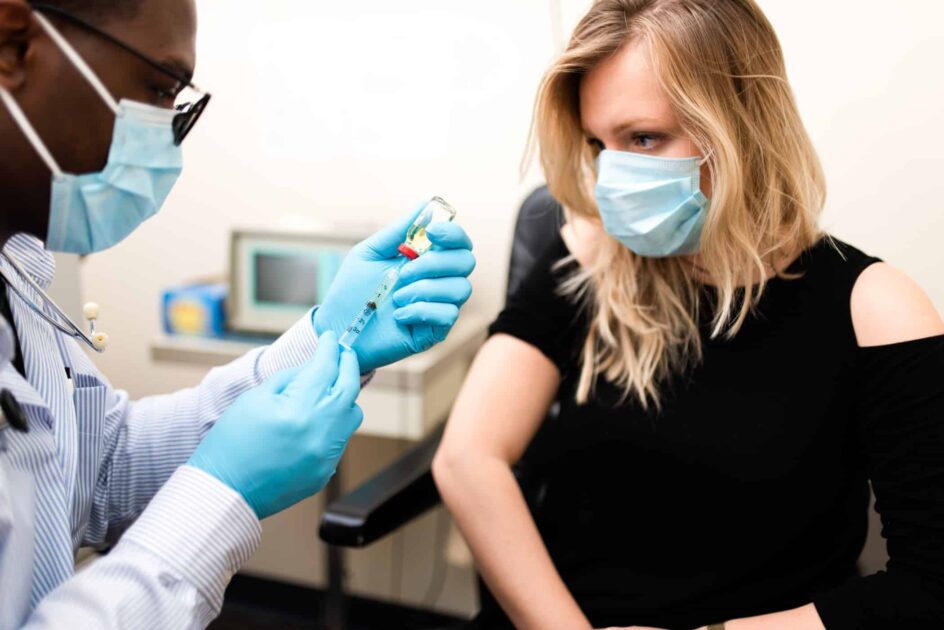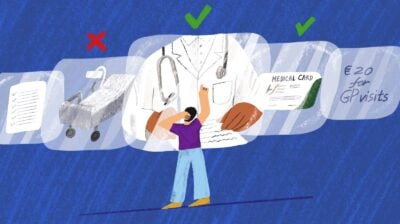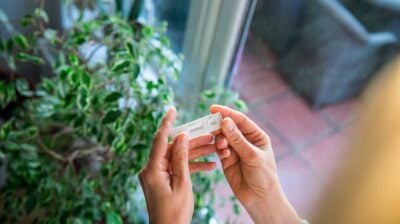Fertility, pregnancy and the COVID-19 vaccine
There is no evidence that COVID-19 vaccination affects fertility or pregnancy. However, the vaccine is the best way to protect yourself from the serious symptoms of COVID-19.

There is a lot of information available about COVID-19 vaccination and fertility. While there is no evidence to show that the vaccine affects fertility or pregnancy, we do know that COVID-19 is a risk to your health.
Fertility, pregnancy and COVID-19 vaccination
Getting the vaccine is the best way to protect yourself and those around you from the most serious symptoms of the virus. If you are pregnant, breastfeeding, planning to have children one day or taking contraception, it is safe to get the vaccine.
Does the COVID-19 vaccine affect fertility?
There is no evidence that COVID-19 vaccination affects fertility. If you are trying to get pregnant, you can still get the vaccine. Doing so will protect you from the virus.
Does the vaccine cause delayed or irregular periods?
There is no evidence that the vaccine has any link to irregular periods. However, we do know of many other factors that can cause your period to be late or irregular. Stress is one of these.
Our lives have changed a lot since the emergence of the COVID-19 pandemic. Lockdowns, less social interaction and working from home are some of the many changes that people have experienced. Whether you are conscious of it or not, it is possible that such large life changes have caused you stress, and this stress may have affected your menstrual cycle. During times like these, it is really important that you make time for self-care. Taking the time to do things that you enjoy can help to reduce stress and support a healthy body and mind. Speaking with other people about how you feel is another way to relieve stress. If you are experiencing stress or other challenges in life, you could consider going to counselling.
Exercise can also affect your period. While moving your body can be enjoyable and good for your health, pushing your body too hard can put it into a stressed state. This may lead to delayed or irregular periods. If you are exercising, it is important to give your body the rest and food that it needs. Learn more about exercise addiction and how to begin exercising.
Regardless of how much you move, your body needs enough energy from food in order to function optimally. If you are not eating enough, your body might not have enough energy to menstruate. It is important to listen to your body’s hunger cues and support your body with a wide variety of foods. If you need help with your nutrition, try to seek the support of a GP or a registered dietician rather than looking up advice online.
There are many other reasons why your period may be delayed or irregular. If you have any concerns, it is always best to visit your GP.
Does the vaccine interfere with the contraceptive pill?
The COVID-19 vaccine has not been shown to affect any form of contraception. It is safe to continue to take it before, during and after vaccination. If you are currently on contraception and are concerned about the COVID-19 vaccine, it is best to speak with your GP or the person vaccinating you.
Can I get the vaccine if I am trying to get pregnant?
It is safe to get your COVID-19 vaccine if you are trying to get pregnant. This is also true if you are receiving fertility treatment such as IVF.
Can I get the vaccine if I am pregnant?
The COVID-19 vaccine has not been shown to cause any harm to pregnant people or babies in the womb. Getting a vaccine will greatly reduce your chances of getting COVID-19 while pregnant and becoming very ill.
How do I get a vaccine if I am pregnant?
If you are pregnant, your maternity hospital will phone you to arrange a vaccine for you. You can also talk to your obstetrician (doctor specialising in pregnancy and reproductive health) or midwife at any of your hospital appointments to arrange getting your vaccine.
Pregnant women are now advised to get the COVID-19 vaccine at any stage of their pregnancy. It had previously been recommended at 14-36 weeks.
If you have any questions or concerns about getting the vaccine while pregnant, speak with your can talk to your obstetrician, midwife or GP.
What vaccine will I receive if I am pregnant?
The vaccines being offered to pregnant people are the Pfizer and the Moderna vaccines.
Will the vaccine have any effect on my unborn baby?
There is no evidence to show that COVID-19 vaccines have any negative effects on babies in the womb. However, if you are vaccinated while pregnant, antibodies against COVID-19 may be passed on to your baby if you breastfeed. This may give some protection from the virus to your baby.
What if I am breastfeeding?
There is no known reason to avoid breastfeeding after you get your COVID-19 vaccine.
If you have any other concerns or questions about the COVID-19 vaccine, your vaccinator will be happy to answer any questions you have at your appointment. You can also visit the HSE website for accurate and up to date information on the vaccines.
Need more information?
We are here to answer your questions and talk through your options. Our online chat service is for 16 to 25 year olds and is available Monday to Friday, 4pm to 8pm. Chat to us now about your situation.
- Chat now to a trained Youth Information Officer
- Or leave us a message and we will email you back
Feeling overwhelmed or want to talk to someone right now?
- Get anonymous support 24/7 with our text message support service
- Connect with a trained volunteer who will listen to you, and help you to move forward feeling better
- Free-text SPUNOUT to 50808 to begin
- Find out more about our text message support service
If you are a customer of the 48 network or cannot get through using the ‘50808’ short code please text HELLO to 086 1800 280 (standard message rates may apply). Some smaller networks do not support short codes like ‘50808’.






